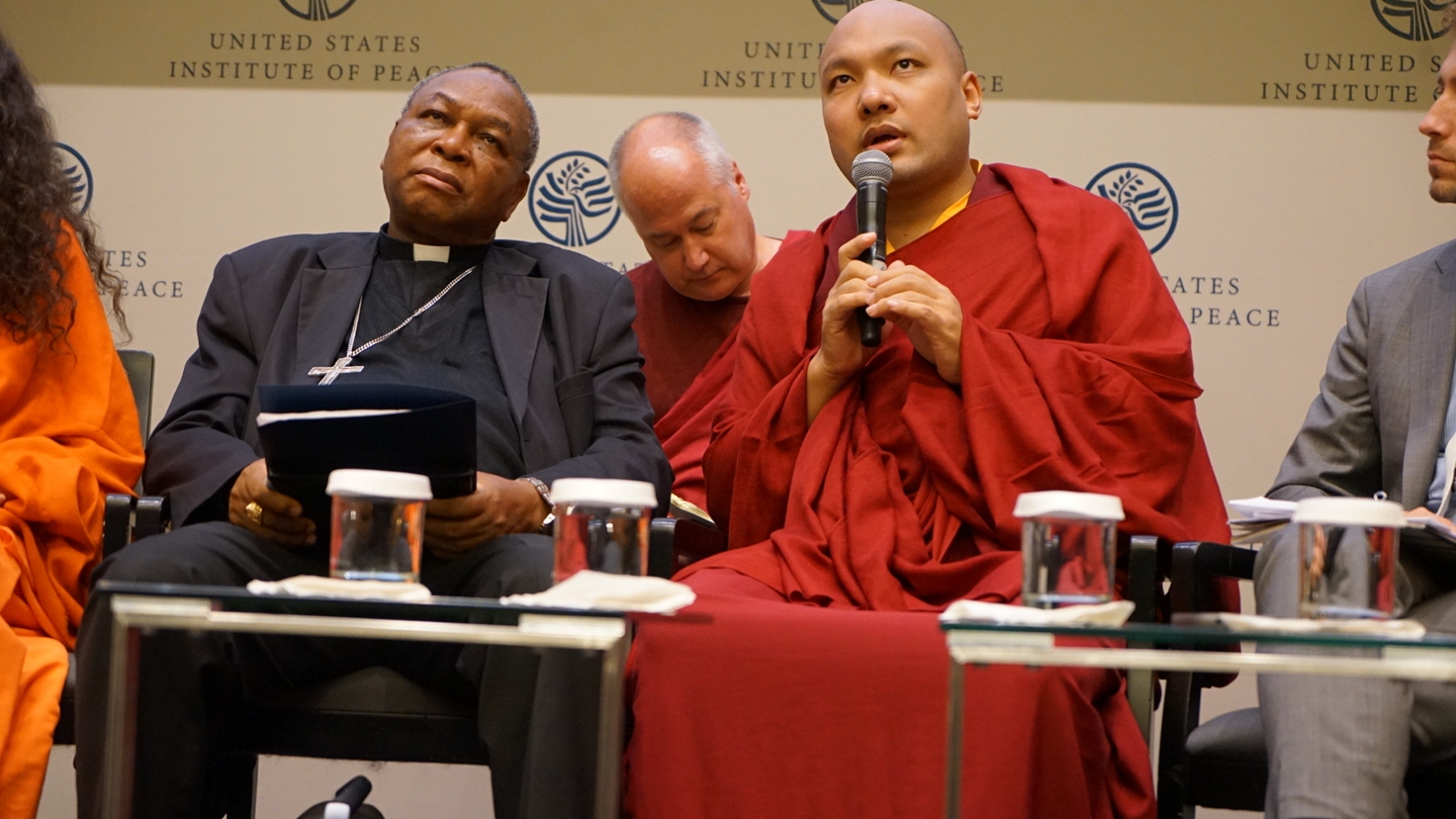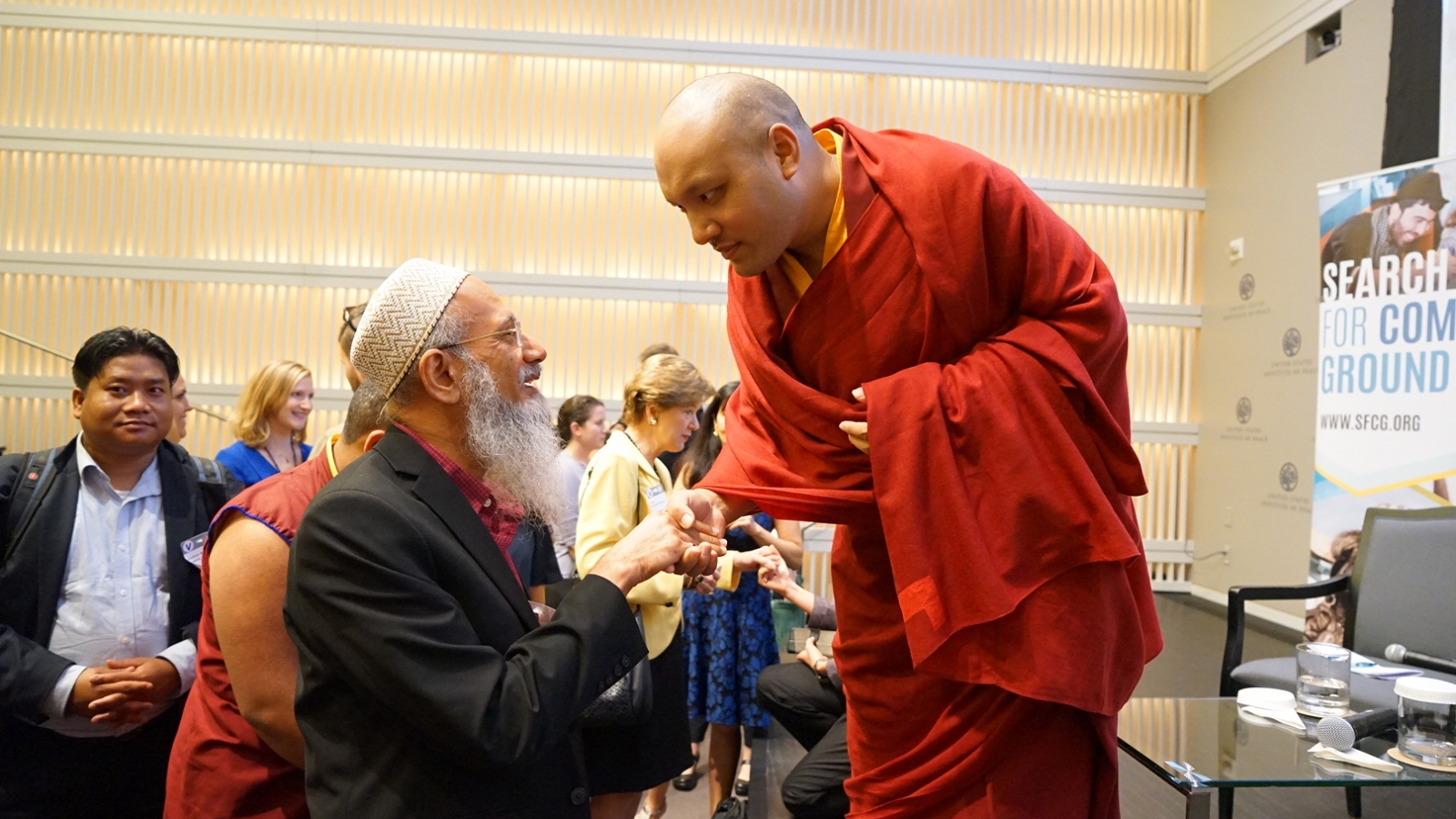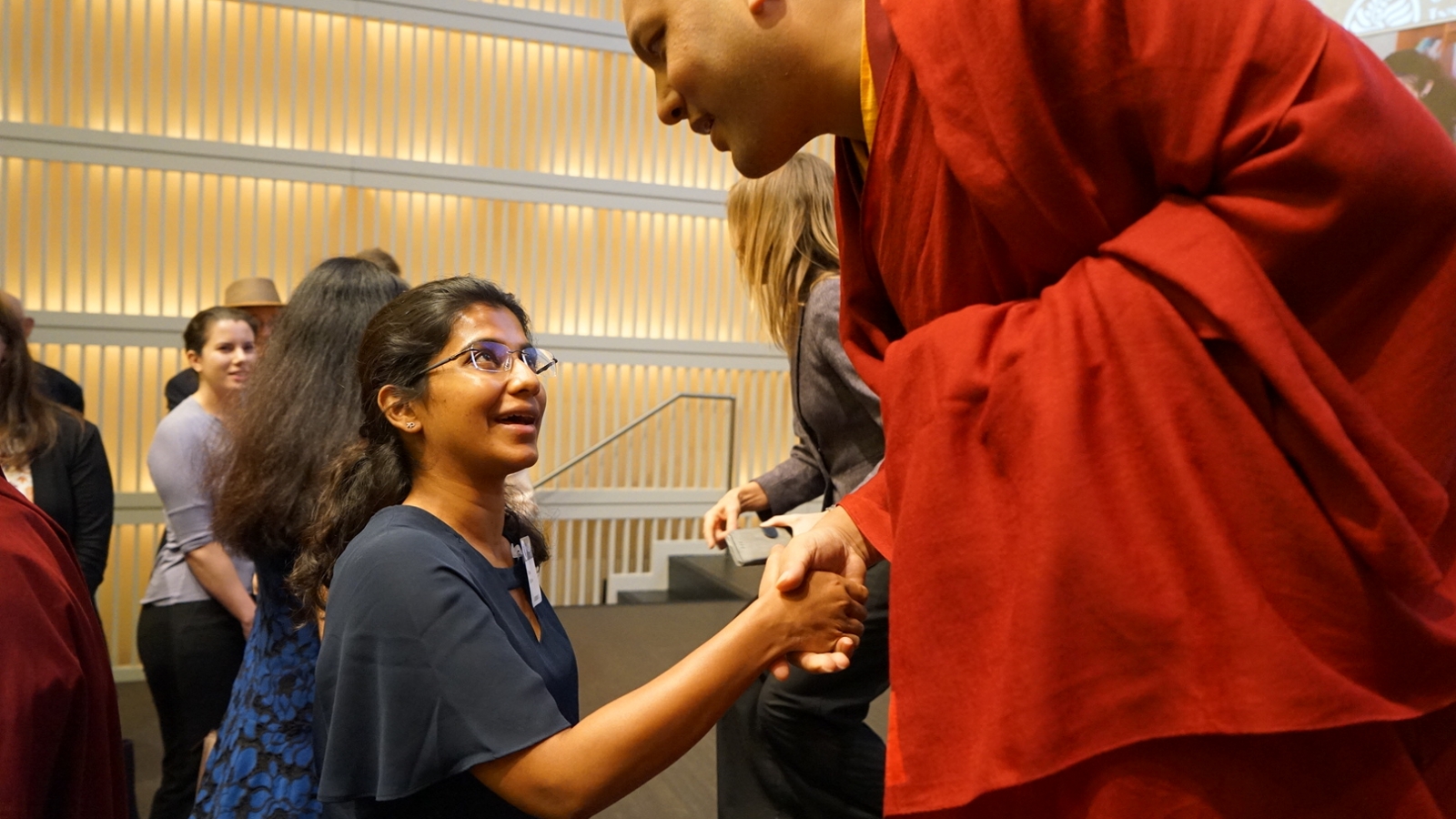U.S. Institute of Peace, Washington, D.C.
July 27, 2018
From July 24 to 26, 2018, the USIP held a conference that focused on concrete solutions to the problems of religious freedom worldwide. On the following day, a conference was jointly convened by the USIP, the International Republican Institute, and Search for Common Ground to explore countering violent extremism and interfaith peace-building. His Holiness was the lead speaker on the latter panel. After expressing his thanks for being invited and mentioning that he had previously visited the USIP, His Holiness spoke about religion and choice.
“First of all I think religious freedom is one of our most fundamental human rights,” he said. “It is one of the most important since the presence or absence of religious freedom not only affects those who are religious: since it is a matter of choice, religious freedom gives to those who choose to be religious and those who choose not to be religious the equal right to live according to their choice.
“The question remains, however, of how we can practically implement and ensure our religious freedom. For example, I meet many people for whom religion can be an issue even within their family. The parents might be Buddhist yet their children could be drawn to Christianity. Since the parents would like their children to share their faith, the situation could become uncomfortable.
“The fact remains that spirituality, including religious spirituality, is a very personal issue; it is a question of the inclinations in each person’s individual mind—the choices they make and feelings they have. Religion is often presented as a tradition that has to be followed, such as that of our parents. It is essential, however, to respect the feelings of our own mind, yet sometimes we do not accord these sensitivities enough importance.
For this reason, when we practice a religion, we should not just copy others or blindly follow some custom. Spiritual practice must be a way for each of us as, an individual in touch with our own mind, to give meaning to our life and come to an understanding of the fundamental meaning and value of our life. Having access to a religious tradition should feel like an opportunity to explore our inner world and develop our spiritual values, and not like something that has been imposed upon us. Religious leaders have the responsibility, therefore, to make people aware of this inner search and also to present the fact that religious freedom is an innate right, and not something that can be given or withheld.”





